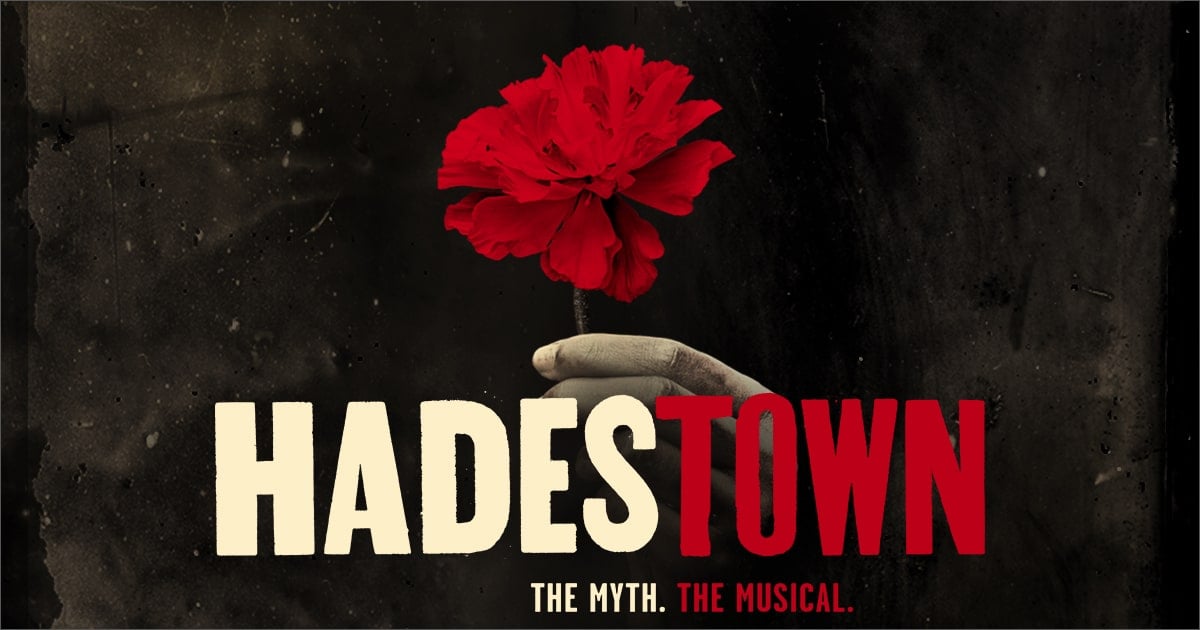It’s an epic that’s been evolving for over a decade—in fact, much longer than that. Many know the tragic myth of Orpheus and Eurydice, a tale of two lovers separated by death, leading Orpheus to journey to the underworld to bring back Eurydice from the realm of the dead, all with the power of his music. Details may vary, but all variants end the same way: Orpheus is allowed to lead Eurydice back to the living world only if he does not look behind him—a rule he breaks.
What hopeful story can be found in such a downer tale like that? Anais Mitchell, Vermont-based songwriter and singer, found the answer to that in the soon-to-be-Broadway musical Hadestown.
Hadestown retells Orpheus and Eurydice’s tale in a time in America, heavily implied to be that of the past through the Great Depression, or a post-apocalyptic future, all truly your take. It’s a folk opera that combines New Orleans jazz with American folk music to tell its story. It began as a small theater production by Mitchell, touring around on a school bus, eventually growing to become a concept album released in 2010, performed by Anais Mitchell, Justin Vernon, Greg Brown, Ani DiFranco, and more.
The concept album led to a successful and extended Off-Broadway run in 2016, this time with a stellar cast of Damon Daunno, Nabiyah Be, Amber Gray, Patrick Page, Chris Sullivan and more. Now, after two runs in Canada and London, Hadestown is heading to Broadway for its 2019 season, making now the perfect time to give the original Off-Broadway cast recording a listen.
In this reincarnation, Orpheus and Eurydice are very much in love with each other and want a life together, but that’s is easier said than done when times are hard and basic needs are scarce. However, trouble comes from down below in the form of Hadestown, a underground factory town run by Hades, ruler of the dead. Faced with desperation and lured by a cunning Hades, Eurydice chooses to go down to Hadestown rather than face a direct death, and Orpheus goes on his quest to bring her home.
I tend to be drawn towards stories that take time-old tales and reimagine them in a way that feels like I’m hearing them for first time. Hadestown makes you truly care whether, maybe this time, Orpheus and Eurydice will both make it out alive. They do this by creating a loving relationship, though not without unaddressed flaws, that sustains the two through the darkest of times.
They are also not the only couple in this show. The love story of Orpheus and Eurydice is entwined with that of Hades and Persephone, whom Orpheus appeals to in every myth. Hades, the cold owner of the factory of his own namesake, stands in contrast with Persephone, goddess of springtime, who takes on a fun and warm presence as both queen of the underworld and speakeasy owner in Hadestown. Their relationship has seen better times, as a result of Hades’ creation of Hadestown, yet their love for each other still exists. The show also enlists Hermes, whom you may know as the Messenger of the Gods, as our narrator and the Fates as a true Greek chorus, getting inside the heads of the characters.
Like many musicals before it, Hadestown has no shortage of political imagery and themes. One such number, “Why We Build the Wall,” which already evokes a particular image through its title, is a powerful song that showcases how false promises and lies can enslave a whole population under one man’s thumb. Key songs paint Hadestown as a hellish city that works its citizens to death (pun intended) and showcase the power of raising one’s voice no matter who tried to silence you.
There are also elements of climate change to be found, notably in “Chant.” The musical also deals with the conflict of holding on to your ideals in the midst of survival through the more optimistic Orpheus believing in the goodness of his fellow man, while Eurydice’s desire for stability pushes her towards Hadestown. The story does a good job of balancing both views, encouraging Orpheus’ optimism while providing sympathy and a defense for Eurydice’s choices (one that I hope the fandom keeps in mind).
Ultimately, Hadestown declares that, while changing the world is not easy, and you can’t blame ordinary people like Orpheus and Eurydice for not being perfect in their pursuits, you still have to try. That’s why Hadestown’s songs are sung again and again, even if the audience knows what happens every time. I strongly hope that its Broadway incarnation retains what made me love it in the first place, from its poetic lyrics to its endearing characters and poignant themes.
(image: Helen Maybanks/2019 Hadestown on Broadway)
An avid writer, Jewel Queen loves all things science, Star Wars, Disney, Marvel and more of fantasy and fiction! Her goal is to put all her perspective, passion and views into her writing. Her all-time favorite characters include Finn, Moana, Rey, Poe Dameron and Belle. She has a particular affinity for biology and a soft spot for fantastical creatures.
Want more stories like this? Become a subscriber and support the site!
—The Mary Sue has a strict comment policy that forbids, but is not limited to, personal insults toward anyone, hate speech, and trolling.—









Published: Jan 28, 2019 09:49 am